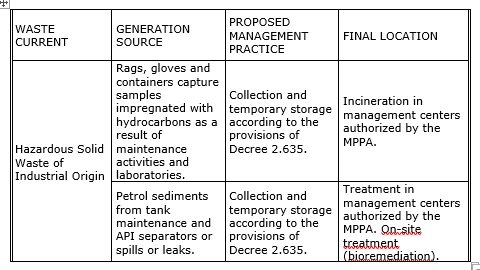ETHICAL PRACTICES AND ORGANIZATIONAL SUSTAINABILITY

For members of any organization, ethical practice is key to fostering commitment, teamwork and professional respect. Entrepreneurs must choose legal and transparent ways to make their decisions. However, when personal benefits prevail and not collective benefits, it is likely that their actions end badly.
Ethics is a word that we constantly hear and that is defined as the science that studies human behavior, of what is right and what is not. The ethical practice in any organization is paramount, it helps leaders to make decisions that benefit the organization and not personal interest. Companies or organizations exist to generate value, create sustainable environments that respect the rights of people, the environment and laws. Always with ethical principles that multiply and avoid corruption.
However, the sustainability of any organization has its basis in ethical practice. Within a company derive the different scales of social, moral or environmental values in different areas thus forming the global society. In the same environment, the priorities in relation to these aspects change over time, which is why natural resources are protected with more emphasis today than before.
In recent years, for companies or organizations, it has been practically a requirement that they integrate into the environment where they carry out their activities, that is why social responsibility, especially with the environment, now forms an important part of business policies. Today, our society is facing a series of crises that have no precedent in history; financial crisis, economic crisis, industrial crisis and environmental crisis. All of them are the result of an unsustainable development model that is based on the misuse of social and natural resources, therefore, for companies, sustainability is presented as an opportunity for change and transition towards a new way of doing things, but also towards new ways of living and growing in a competitive environment where we can all win.
ETHICAL PRACTICES AND ORGANIZATIONAL SUSTAINABILITY OF OIL COMPANIES
For development to be sustainable within an oil organization, there must be a balance in the impact that these activities achieve in the social, environmental and economic, known as quality of life and in turn these resources that are generated, not finished in future generations. In the same way so that the sustainable development is real, there must be the commitment and the ethical action of the companies, so that the growth of the same ones does not harm the inclusion and social equality and that does not deteriorate the environment with its activities

After the production and extraction of oil and its derivatives, royalties and economic contributions to benefit society, should be consistent with the purpose of social welfare and not be doomed to the accumulation of power and unbridled exploitation of resources that would ultimately harm society, the environment and companies in an integral manner.
Consequently, with the above, if the values and principles of the companies and the individuals that conform them are not sufficiently solid (integrity, responsibility and justice), they end up generating unfortunate events of corruption that tarnish and affect the image and integrity of these companies, penal consequences are generated to individuals, work is paralyzed, there is also a bribe to hide impacts, and this in turn has negative effects on both society and the environment.
Corruption exists due to the high degree of impunity existing before the cases denounced and proven, it reveals that there are no negative consequences when taking the risk of committing crimes that are highly lucrative. In this case, social responsibility must be the flag to contribute to the creation of solid foundations in the individuals with which all forms of malpractice and illegality that threaten the social and environmental environment can be combated, based on the regulations that clearly establish the duties, rights, prohibitions, disabilities and sanctions applicable to this professional practice. A very particular case in relation to this was the arrest of 76 Venezuelan officials for acts of corruption in PDVSA (Petróleos de Venezuela SA), who operated within an international criminal organization where various methods were applied to mobilize funds, which included false contracts and over-invoicing against public institutions such as PDVSA. Source.
ETHICAL PRACTICE IN PDVSA. CASE OF USE
Petróleos de Venezuela s.a. (PDVSA) is a state company s.a. Venezuelan whose activities are the exploitation, production, refining, marketing and transportation of Venezuelan oil. A national company deeply committed to the Venezuelan people, whose objective is to ensure transparent, efficient and adequate management of State resources under professional and ethical principles, in the interests of the Republic, through a set of rules that regulate the structure and functioning of the entity. It is based on the following principles: Socialist Ethics, Honesty, Responsibility, Protagónica Participation, Equality, Solidarity, Vocation Of Service, Effort, Collective, Efficiency, Efficiency
It should be noted that the objective of the PDVSA company is to integrate ethical practice into the mission and vision of the company. Based on this, it can be said that the mission is the fulfillment of the purposes and values of this organization. However, today we can say that PDVSA is immersed in a deep crisis, the same one that protects Venezuela, the crisis around its code of ethics is increasingly evident. Within this organization there is a common practice, theft, a situation that involves many people, in addition to this, they have shown the constant negative impacts they have caused the environment, an example of this are the oil spills that bring terrible economic consequences and ecological.
CASE OF USE
After all the above, I will give a brief summary of what my research work was at the facilities of PDVSA Occidente, exposing some of the failure in relation to the subject.
INTRODUCTION
Oil exploration is a process that is carried out by drilling methods, completion techniques and production methods, which despite being so complex have the same purpose, obtaining oil. During the development of these activities, various wastes are obtained that can negatively impact the environment, if the handling and treatment of them is not adequate or the established norms and regulations are violated. In the world oil activities are developed that have ignored these regulations where it has been demonstrated that there was a bad disposition and treatment of the waste generated, and have caused a greater environmental pollution, affecting maritime zones, forests and others close to human settlements.
PDVSA Occidente, is located in Venezuela in the state of Zulia, conformed by seventeen facilities: Patios de Tanques (13); Shipping Terminals. At present, the PDVSA Occidente Coordination does not have a waste management plan that considers the updated inventories of recoverable hazardous waste and untreated stored hazardous waste and non-hazardous waste in the facilities that make up that Coordination. The activities in the Warehouse and Shipping Terminal generate large volumes of polluting waste that can negatively impact the environment, the health of the workers, the nearby communities, which translates into a loss of the values of the organization.

Location of the facilities of PDVSA Occidente
[Source] PDVSA
At present, inventories of untreated and recoverable hazardous waste, as well as non-hazardous waste in the facilities that make up this coordination, show a considerable increase, and the coordination does not have a waste management plan that considers updated inventories. In order to establish the procedures for its collection, transportation, treatment and final disposal, in accordance with the guidelines established in the current environmental regulations.
This is why I carry out the development of an investigation with the purpose of designing a waste management plan in the Western Coordination of PDVSA with the objective of updating inventories and proposing the procedures for their treatment.
WASTE MANAGEMENT PLAN IN THE COORDINATION OF PDVSA OCCIDENTE
In order to carry out the research, the objectives were the following:
1.- Diagnose the current situation of hazardous and non-hazardous waste in the Tank Yards, Shipping Terminals in the Coordination of PDVSA Occidente, where waste streams could be identified. For this, a file with the specific data of each of the facilities visited was prepared. Notes were taken of the following aspects for each of the wastes: The type of waste generated, the volume and year of generation, the origin or origin, the alternative planned for its management and the description of the site where the waste is located.

[Source] @norkamoran

[Source] @norkamoran
2.- Evaluate the procedures for the collection, storage and final disposal of the waste.
The elaboration of the management plan for the waste streams generated in the Operational Coordination facilities is based on the Venezuelan environmental legislation and PDVSA's internal rules and procedures (supported by the ethics code), which are mentioned some of the following:
• Organic Law of the Environment
• Decree 883 (Standards for the classification and quality control of water bodies and discharges or liquid effluents).
• Decree 2216. (Norms for the management of solid waste of domestic, commercial, industrial, or any other non-hazardous nature.)
• Among others,
3.- Propose a strategy for the development of relevant environmental controls for the collection, transport and final disposal of hazardous waste, in order to guarantee the safety of personnel and minimum impact on the environment.
Based on the diagnosis made at the facilities, the data collected and based on Venezuelan environmental legislation and PDVSA's internal rules and procedures, the Waste Management Plan was developed at PDVSA's Western Coordination.
Next, a small sample of what this work was.

[Source] @norkamoran
This plan refined the previous concept of waste stream incorporating unidentified waste. As part of the plan presented, new environmental controls relevant to the collection and considerations for the final disposal of hazardous waste were proposed, in order to guarantee compliance with environmental legislation, personnel safety and minimum impact on the environment.
BE RESPONSIBLE WITH THE ENVIRONMENT OBEYES THE SUSTAINABILITY OF ANY ORGANIZATION
By @norkamoran
References
http://www.edphcenergia.es/es/sostenibilidad/estrategia/etica/
https://www.gestiopolis.com/sostenibilidad-empresarial-cultura-organizacional-y-estrategia/
http://idepro.edu.ec/2017/05/21/la-etica-como-fundamento-de-la-sostenibilidad/
https://www.educaixa.com/-/etica-el-reto-de-la-sostenibilidad
https://www.diarioconcepcion.cl/economia-y-negocios/2018/02/27/sostenibilidad-empresarial-etica-responsabilidad-y-transparencia-potencian-el-desarrollo-de-las-organizaciones.html
https://destinonegocio.com/ve/emprendimiento-ve/sostenibilidad-en-las-empresas-3-consejos-para-comprometer-a-los-empleados/
http://www.pdvsa.com/index.php?option=com_content&view=article&id=619:valores-organizacionales&catid=49&Itemid=101&lang=es
https://es.scribd.com/doc/48253788/Decreto-2635-Materiales-Peligrosos-Venezuela